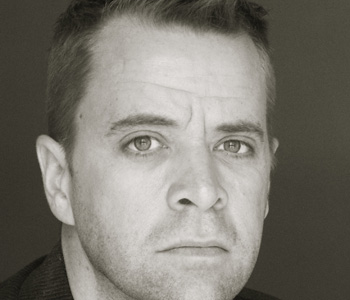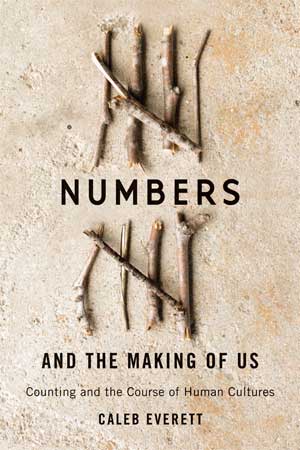
Numbers, words, and other symbols for precise quantities, are a human invention that had a broad impact on our cognitive and behavioral lives. This claim is based on extensive findings obtained by many researchers across a host of fields including linguistics, psychology, and archaeology. Through a novel synthesis of these findings, Numbers and the Making of Us shows that the invention and refinement of numbers across cultures had a profound impact on the human condition.
A key point underscored in the experimental data surveyed is the following: While even at birth humans have some abilities to differentiate quantities, these abilities are very limited until we are taught number words and counting. We seem to have a native ability to discriminate small quantities from each other, say two from three items. We also have a native ability to discriminate large quantities from each other if they differ in marked ways. We can differentiate, for instance, four from twelve items even at birth.
Surprisingly, perhaps, we require numbers to build upon these basic quantity differentiation skills. Numbers are the conceptual scaffolding that allows us to construct uniquely human quantitative thought. In the book, this point is supported with data from prenumeric children, anumeric adults in places like Amazonia, and members of other species.
So how do humans arrive at numbers if we do not just “grow” into the recognition that, for instance, eight items can be consistently and precisely distinguished from nine items? How were numbers ever invented?
Through the examination of linguistic data across cultures, the book highlights a simple point: Numbers are typically invented after people come to recognize correspondences between the fingers on their hands and other items in their natural environment.
This manual route to numbers is not the only one cultures may take, but it is the most common route. As people come to recognize, in a haphazard and inconsistent manner, that a “hand” of something can refer to a specific quantity (five) of that something, they verbally reify numerical concepts. These verbal numbers can then be passed to others, refined, and built upon. The subsequent construction of more elaborate numerical concepts is essential to the development of other impactful cultural practices like agriculture and writing. In other words, the book suggests that the cognitive tools called numbers helped lead to a reshaping of the lives of most humans.
Like other more commonly acknowledged inventions from stone axes to the wheel, number words radically shifted the human story. So the book relates to other work in anthropology that seeks to better elucidate the history of our species. It also relates to work in linguistics on the types of number systems used in the world’s languages. Finally, it is integrated with other recent work in the cognitive sciences that illuminates the distinction between numbers and the coarse innate quantity recognition skills shared by all humans.
People sometimes assume that number words just serve as labels to “numbers” in the brain, but this position is actually not well supported empirically. The book suggests that numbers are best considered language-contingent representations of precise quantities, and that most people do not learn to represent quantities precisely until they have acquired numbers. (This latter point is similar to the conclusion espoused by cognitive scientist Rafael Nunez in the most recent issue of Trends in Cognitive Sciences, suggesting that other researchers are thinking along similar lines.)
My professional path is ultimately interwoven with my personal one. Some of my childhood was spent in Amazonia with a group of people that do not use numbers. (My father, Daniel Everett, was the first to point out that the language of those people was anumeric.) My personal background certainly helped to motivate my fascination with the development and usage of numbers. All of my research focuses on the interaction of language, cognition, and environment, and the story of numbers is integral to understanding quantitative cognition and the ways in which humans reshaped their environments via numerical technologies.
Readers will see that from the outset of the book, I try to convey the ways in which numbers are filtered into our lives in pervasive and often undetected ways. Everything from our perception of time to our self-esteem is impacted by the culturally specific means we use to quantify things.
Consider the case of time, highlighted in the first chapter: We have minutes and seconds not because of something that exists in the physical universe, but because we hold on to the detritus of long-dead languages in Mesopotamia, namely unusual base-60 number systems that were used by speakers in that region millennia ago.
In the first chapter I highlight ways in which particular number systems impact our lives, while presaging some of the major points of the book. I note that languages vary dramatically in the kinds of numbers they use, and some languages have few or no numbers. I also point out that number systems are usually based around decimal, vigesimal, and quinary patterns because most (but not all) numbers were developed after people recognized correspondences between the quantities of their fingers and other items in their surroundings.
However, humans arrived at such recognitions in haphazard ways that were only concretized and disseminated through and across cultures via number words. This dissemination ultimately reshaped the human story. These and other points are hinted at in the first chapter, and explored more fully later in the book.
I hope the book gives readers a better appreciation of how so many central aspects of their own lives are dependent on the invention of the cognitive tools we call numbers. The story of numbers is also illustrative a larger theme: what makes humans so special is not simply our innately given intelligence, but the cognitive tools we acquire from each other––often across generations––and then subsequently refine.
An interrelated pragmatic goal of the book is to bring heightened awareness to the crucial role that anthropological linguistics can play in elucidating the human narrative, helping us to better understand how we got where we are now as a species. Anthropological linguistics sits at the nexus of the study of language, human cognition, and culture, and relies on findings from other diverse fields like neuroscience and archaeology. The claims in the book are based on findings from all these diverse fields, but rest most heavily on the study of diverse languages around the world.
I also hope that the book gives readers a better sense of the insights diverse cultures can give us, even those cultures that do not wield numerical technologies like ours. There is a temptation to exoticize small groups of indigenes, and to see their reduced reliance on numbers as less natural or, simply, weird. In fact, they represent more faithfully the bulk of our species’ history, since most numerical technologies are a relatively recent innovation. They offer an important window through which we can look and discover more about ourselves.
Finally, I hope one of the consequences of the book is that readers will reflect on the fact that so many of the “essential” numerical features of their lives, from time-telling to the measurement of their net worth, are not shared by all people.


Caleb Everett is Professor and Chair of Anthropology at the University of Miami. He is an anthropological linguist with a PhD in linguistics from Rice University. Numbers and the Making of Us is his second book. His first book, Linguistic Relativity: Evidence across Language and Cognitive Domains, was published in 2013. He has published articles in venues ranging from general science journals like Proceedings of the National Academy of Sciences to more specialized linguistic journals like Studies in Language. He is a member of the inaugural class of Andrew Carnegie Fellows. His work has been covered in many news outlets.